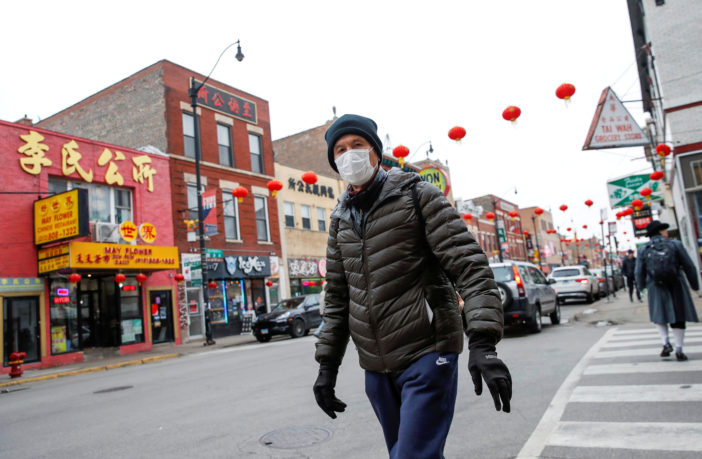On its sprawling campus in America’s heartland, thousands of miles from China, the University of Illinois at Urbana-Champaign has taken aggressive steps to keep the fast-spreading coronavirus away from its classrooms and students.
The school, with one of the highest percentages of Chinese students among U.S. universities, has suspended academic programs in China for the spring semester and banned students from travelling to the country for academic-related matters. It has advised faculty and staff to follow federal travel advisories that, as of Friday, warned against going to China.
“We want to take all of the precautions we can so, in the worst-case scenario, we keep our community healthy,” said Robin Kaler, associate chancellor for public affairs at the University of Illinois, 135 miles (217 km) south of Chicago, where the first human-to-human transmission of the disease in the United States was confirmed last week.
More than 350,000 Chinese students are pursuing higher education in the United States and 10,000 American students are enrolled in academic programs in China.
The sheer number of the students, many of whom have travelled to their home country in recent weeks, makes schools a potential incubator for a widespread outbreak in the United States, given the close proximity of dormitory life.
“Colleges and universities are very much on the front line of those because of our role as global institutions,” Sarah Van Orman, chief health officer at the University of Southern California (USC) said. “The challenge is making sure that we are being prudent without overstating the risk.”
In dealing with the new outbreak, officials at U.S. colleges and universities can draw from their experiences with previous public health scares, including the 2003 outbreak of the SARS coronavirus.
A ‘DELICATE BALANCE’
At University of Illinois, with some 5,800 Chinese students, Kaler sees a challenge in keeping the campus free of the new coronavirus without infringing on rights or fanning xenophobia.
There is a need to strike a “delicate balance” between public safety and personal freedom when dealing with a growing public health issue, Kaler said.
Even so, officials would prefer to err on the side of caution. “If they want to come and fuss at us later, we would rather have them be alive to be able to come fuss at us than not,” she said.
USC, where 6,600 students from China attend college, has taken similar steps in banning students from travelling to China and strongly advising against faculty making the trip.
Officials at the school have encouraged concerned students from Wuhan, the outbreak’s epicentre in central China, to talk with school counsellors about their concerns for loved ones back home, while trying not to stigmatize Chinese students on campus.
While the new coronavirus has spread to more than 20 countries, all of the nearly 260 deaths as of Saturday have occurred in China, with the vast majority of the thousands of cases recorded in and around Wuhan, capital of Hubei province.
“There’s an unfortunate history about many communicable diseases that have started in one population,” said Van Orman, whose school has a total student population of 48,800. “It leads to harm for those individuals and does nothing to stop the spread of the illness.”
New York University (NYU), where more than 7,000 Chinese students go to college, has pushed back the start of its spring semester at NYU Shanghai by two weeks to Feb. 17.
The 60,000-student school has also made available online course work and alternative programs abroad to students affected by the postponement and travel restrictions.
The university’s health centre staff “are being particularly vigilant about getting travel and contact histories as they evaluate students who present with respiratory ailments and complaints,” said NYU spokesman John Beckman.
University of Illinois officials contacted each of its 150 students from Wuhan and asked them to take the necessary precautions and, if they were feeling ill, to immediately seek medical attention.
Many students who went home to Wuhan recently responded to the school and said they were self-quarantining. The dean of students is helping those students work with their professors in order for them to continue their studies while at home.
“The students obviously are very concerned themselves,” Kaler said. “We have found our students very responsible and receptive when we have asked them to take precautions.”
The sight of many Asian students wearing masks as a preventative measure when they are on campus may lead to stereotyping and discrimination, according to Kaler.
“We try to be sensitive to that sort of thing because we don’t ever want any of our students to feel singled out or unwelcome simply because of where they come from,” she said.




